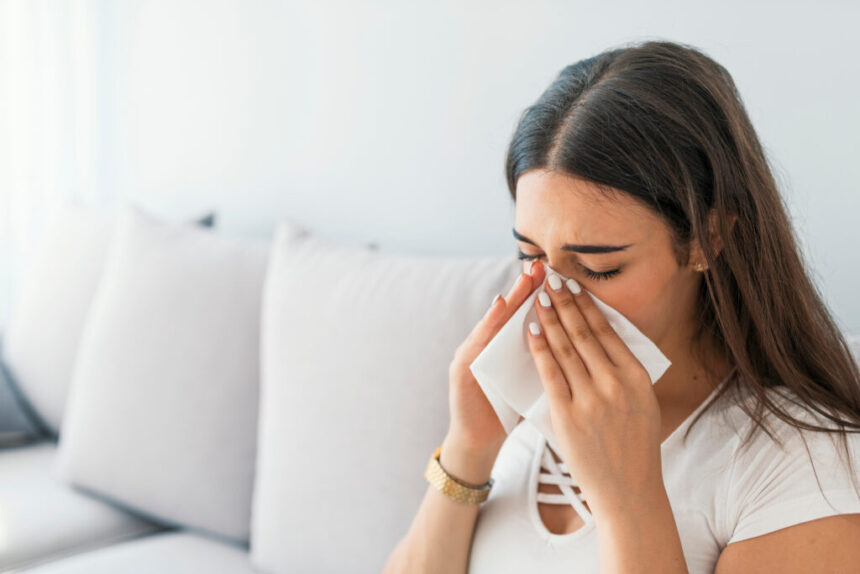Allergies happen when your immune system reacts to a foreign substance that is normally harmless to most people. These substances are found in dust mites, pets, pollen, insects, molds, foods, and some medicines. Contact with an allergen triggers an immune system response, such as inflammation, and this is linked to various respiratory conditions. Here is more information about the role of allergies in respiratory conditions:
Causes Allergic Rhinitis
Allergic rhinitis, commonly called hay fever, is a result of the body’s reaction to airborne allergens. The immune system may sometimes mistake harmless particles like pollen, mold spores, or animal dander as threats. Your body releases chemicals like histamines to fight off these invaders. These chemicals are responsible for the symptoms you experience, such as a runny nose, itchy eyes, nasal congestion, sneezing, and sinus pressure. Some people also notice increased fatigue and trouble sleeping because of these symptoms.
Symptoms of allergic rhinitis range from mild and occasional to persistent and disruptive, depending on the concentration of the allergens involved. Seasonal outbreaks often occur in spring and fall when pollen counts rise, while others may experience year-round symptoms due to indoor allergens like dust mites.
Triggers Asthma
For individuals with asthma, some allergies can worsen symptoms or provoke attacks. Frequent culprits are the same substances linked to allergic rhinitis, including pollen, dust mites, pet dander, and mold. Once inhaled, these allergens prompt the airways in the lungs to become inflamed and swollen. The muscles around the airways tighten and produce extra mucus, narrowing the passageways. As a result, people often notice:
- Wheezing
- Chest tightness
- Shortness of breath
- Difficulty exhaling
- Persistent coughing
The frequency and severity of symptoms may differ from one person to another. Some only notice symptoms at specific times of the year, while others encounter them whenever they are exposed to triggers. Using air filters, regularly cleaning living spaces, and tracking pollen counts can help reduce allergen exposure. Healthcare providers may also recommend personalized asthma action plans that include guidance for managing allergy triggers.
Leads to Hypersensitivity Pneumonitis
Repeated or intense exposure to allergens may lead to a more serious lung condition called hypersensitivity pneumonitis. Unlike common allergies, this disease involves the deeper parts of the lungs and results from a complex immune response. It often affects people who have close and frequent exposure to substances at home or in the workplace, such as farmers exposed to moldy hay or straw and workers who inhale airborne chemicals in manufacturing facilities.
The first symptoms often resemble the flu, with fever, chills, muscle aches, fatigue, and a cough appearing a few hours after exposure. Some people may also feel short of breath or develop chest discomfort. If exposure continues over time, the lungs may become scarred, leading to a permanent condition known as pulmonary fibrosis, which makes normal breathing more difficult. Early recognition and avoidance of the allergen are ideal for preventing lasting lung damage.
Treat Allergies Today
Understanding the connection between your allergies and respiratory health is a positive step toward managing your symptoms. Identifying and avoiding triggers may help reduce the frequency and severity of your reactions. While allergic responses differ from person to person, consistent management offers the possibility of increased comfort and better respiratory wellness. Contact an allergist today to learn more about testing and prevention.





